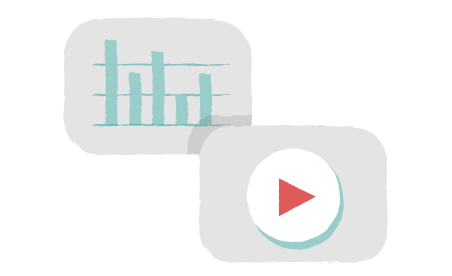In response to the book So You Think You Have Nothing to Hide? by Maurits Martijn and Dimitri Tokmetzis, I wrote a piece last September in which I ran a fine-toothed comb over our own website.
In that article, I explained why De Correspondent uses services that track your data and what we could do about it. Nearly four months later, it’s time for an update, because a lot has changed.
Goodbye, Google Analytics
The most important step we’ve taken is that we’ve said goodbye to Google Analytics. We used this popular free service to see which pages and features on our website work well and which ones need improvement, so that our readers and contributors get more out of the experience.
After searching for alternatives, we decided on the open-source Piwik platform, most importantly because we can host it on our own servers and thus have full control over the data. That means Google is no longer receiving information about you, our visitors.

Our first test with Piwik seemed to go well, but it soon became clear the platform couldn’t handle large numbers of visitors. The server hosting the software crashed at the drop of a hat. Farming it out to a hosting provider familiar with Piwik would cost us about €15,000 per year. We couldn’t justify spending this amount.
Another thing that delayed the transition was that we’d been spoiled by Google Analytics’ features and reporting options. Piwik is a fine package, but not nearly as deluxe as Google Analytics. For a while, we tried to extract the same information from Piwik that Google always gave us.
Until we realized this: a whole lot of that information is superfluous. Instead of measuring everything but the kitchen sink and then seeing if we could find patterns to help us improve De Correspondent, we stopped and asked ourselves what it is we really want to know.
Since then, things have moved quickly. Earlier this week we put an end to our use of Google Analytics. The bill for the switch to Piwik: including the cost of training to master the software and all its quirks, we’ve spent €7,000 up front and will spend between €200 and €300 per month going forward.
More control over trackers
At De Correspondent, we use YouTube, Vimeo, and SoundCloud to play videos and podcasts for you. These services make use of trackers, tiny programs that follow you around the Internet.

There, too, we’ve found a solution: we only enable those trackers when you start the video or podcast. When you load an article, we display a preview of the media element. The associated service – and its tracker – aren’t loaded until you watch the video or listen to the podcast. The choice to allow that or not is up to you.
What about other trackers? To enhance our articles with visualizations, we use LocalFocus. This program also uses Google Analytics. So we sat down with the folks at LocalFocus and came up with a solution that doesn’t use trackers.
That leaves just New Relic which we use to monitor our servers. So far we haven’t found a good alternative for that.
What next?
In the coming months, we’re going to share as much as we can about how we’re wriggling free of the data collection ecosystem we’ve grown so used to in recent years.
We’ll be sharing articles about our experiences during this process, tips on what worked well for us and for others, examples of open-source code that other website developers can use, and more.
In the coming year, we’d also like to open our doors and discuss further improvements with everyone who’s interested – because privacy is and always will be one of the fundamental values that informs our choices when we’re thinking up new functionality for De Correspondent.

So we’d like to enable you to exercise more control over the data we collect. In the new privacy manifesto we’ll be launching, we’ll be as transparent as we can about what data we collect and why, and we’ll give you the option to turn it on or off. And when a new website feature requires us to store privacy-sensitive data so it performs better, we’ll do that on an opt-in basis wherever we can.
That makes it our job to convince you that turning on new features like these will improve your reading experience.
What I’d like to ask of you
If you manage a website or directly (or indirectly) influence your organization’s guidelines on collecting visitor data, please share your expertise with us. What were your considerations, and what were the deciding factors in determining the data you collect? Not all data collection is bad, as long as there’s a good, deliberate reason behind it and you have respect for the people whose data you’re recording. How did those conversations go? Have you noticed any resistance due to conflicting interests? How does your organization deal with that?
Sign up for my newsletter (Dutch only)
I’d love to connect with you and discuss what solutions might look like that respect privacy without endangering an organization’s objectives. And how we might make them publicly available so that other websites can easily implement them.
—Translated from Dutch by Grayson Morris





